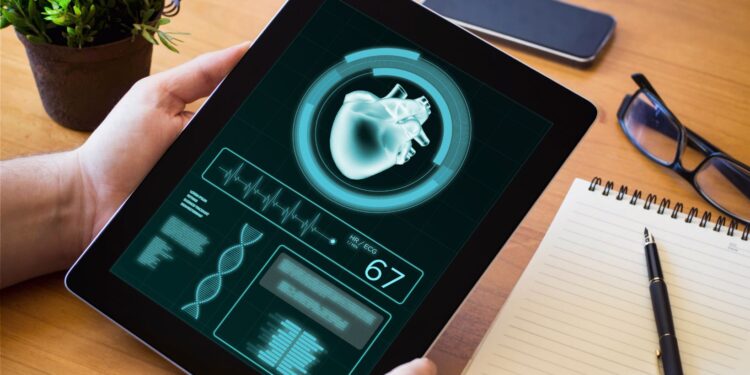Digital health communication tools have transformed interactions between healthcare professionals and their patients. From telemedicine platforms to electronic health records, these new technologies have greatly facilitated medical treatment. On the other hand, increased digital communications also bring on a host of challenges, not the least of which are security breaches and related privacy issues. Protecting patient information is a matter of both trust and regulatory compliance.
Understanding Data Security in Digital Health
Healthcare organizations must prioritize data security when implementing digital communication tools. Sensitive patient information is frequently shared through online portals, mobile apps, and cloud-based systems. Without proper safeguards, this data can become vulnerable to cyber threats, leading to unauthorized access and potential misuse. Encryption, firewalls, and secure authentication processes are essential in minimizing these risks.
Regular security audits identify the weaknesses that may exist in the digital health system. If healthcare providers perform periodic assessments, different types of weaknesses can be observed and updated from time to time. By doing so, it ensures that communication tools remain secure and leakage of data is prevented along with unauthorized disclosure.
Strong Authentication Methods
The effective method of authentication has turned out to be one of the most surefire ways in safeguarding patient data. Many times, a mere password cannot block some of the cyber-attacks. In this respect, MFA enforces two-factor or multi-step authentications, which require users to further confirm their identities by way of biometric verification, among others.
Health care organizations also need to take the initiative on educating their personnel and patients with regard to how to securely login. It provides a one-and-only password with the intent that it discourages sharing login information.
Periodically updating authentication methodologies ensures security precautions remain updated about emerging cyber-attacks.
Security of Data
In this regard, security in the transmission of data is paramount when it comes to using digital health communication tools. Encrypted messaging systems and secure cloud storage platforms are vital in ensuring sensitive patient information is not intercepted by malicious actors. End-to-end encryption means that only authorized users can access transmitted data.
Storage of patient information on secure servers that have access limits reduces unauthorized breaches. Also, the application of role-based access controls helps in ensuring only approved personnel are allowed to access and modify the information. Periodic data backup further secures it from theft due to a cyber incident or technical failure.
Compliance with Regulatory Standards
Regulatory standards need to be adhered to for healthcare providers to maintain security in patient data. Regulations such as HIPAA in the United States and GDPR in Europe have laid down strict guidelines in handling sensitive information regarding the medical history of patients. It helps stay away from potential legal consequences and also maintains ethics in data usage.
Following the proper record retention guidelines is essential for ensuring compliance with these standards. Regular training among staff ensures that health professionals comply with the set requirements in terms of data protection. Clearly outlined policies on handling, storing, and sharing data reinforce security culture in health organizations. Knowledge of updates to regulations makes them ensure risks are reduced and continued compliance is observed.
Cybersecurity Threats in Healthcare
Because patient information holds monetary value, the healthcare industry remains a favorite target of cybercriminals. The threat spectrum ranges from ransomware attacks and phishing scams to malware infections that seriously compromise digital health communication tools. Intrusion detection systems and continuous threat monitoring have been paramount in curtailing these risks.
Training employees to identify cybersecurity threats goes a long way in breach prevention. Awareness programs regarding the identification of suspicious emails, fraudulent links, and social engineering methods will help reduce successful cyberattacks. Proactive threat management improves the security of overall digital health communication systems.
Enhancing Patient Trust Through Transparent Communication
Above all, patients need to feel secure about their personal health information in the use of every digital communication tool. Transparency in the communication of data security measures will help establish trust between health providers and their patients. Informed persons about the collection, storage, and use of their data create a feeling of safety and self-assurance in the management of their medical information.

It gives patients access to privacy settings where they can choose how their personal data is used. The organization should give instructions on how the account may be secured and how security breaches might be reported. Open discussions about digital health privacy will help the patients be responsible for their care in this regard.
There are trusted encrypted messaging platforms that keep PHI confidential across digital health workflows; for email-based exchanges, solutions such as Atomic Mail, an encrypted email service, offer end-to-end protection and access controls, and when ePHI is transmitted they should be covered by a signed BAA with “minimum necessary” sharing and short retention.
Leverage Advanced Technologies for Data Protection
Advancing technology still has a key role in securing patient data. Artificial intelligence and machine learning help in anomaly detection on health systems, hence raising the possibility of detecting security threats before escalation. Automated monitoring tools provide real-time alerts to healthcare providers to take necessary action against suspicious activities.
Innovations in 3D medical animations provide for the education of patients with the observance of patient privacy. A secure digital platform that embeds AI-driven security measures enables the healthcare organization to go ahead proactively in confronting emerging cyber threats. With such technologies, data is better protected and digital health communication tools function more effectively.
Conclusion
While some critical areas focus on security and compliance, educative measures equally contribute to protect patient data from various threats across the digital spectrum. Healthcare institutions must be regularly proactive in authenticating strong modes, securing transmission of data, and mitigating cybersecurity threats. It is open communication and also advanced technologies applied that make for a safer environment in digital health. By making data protection key, healthcare organizations will protect their patients’ trusts and ensure digital health communication tool integrity.













